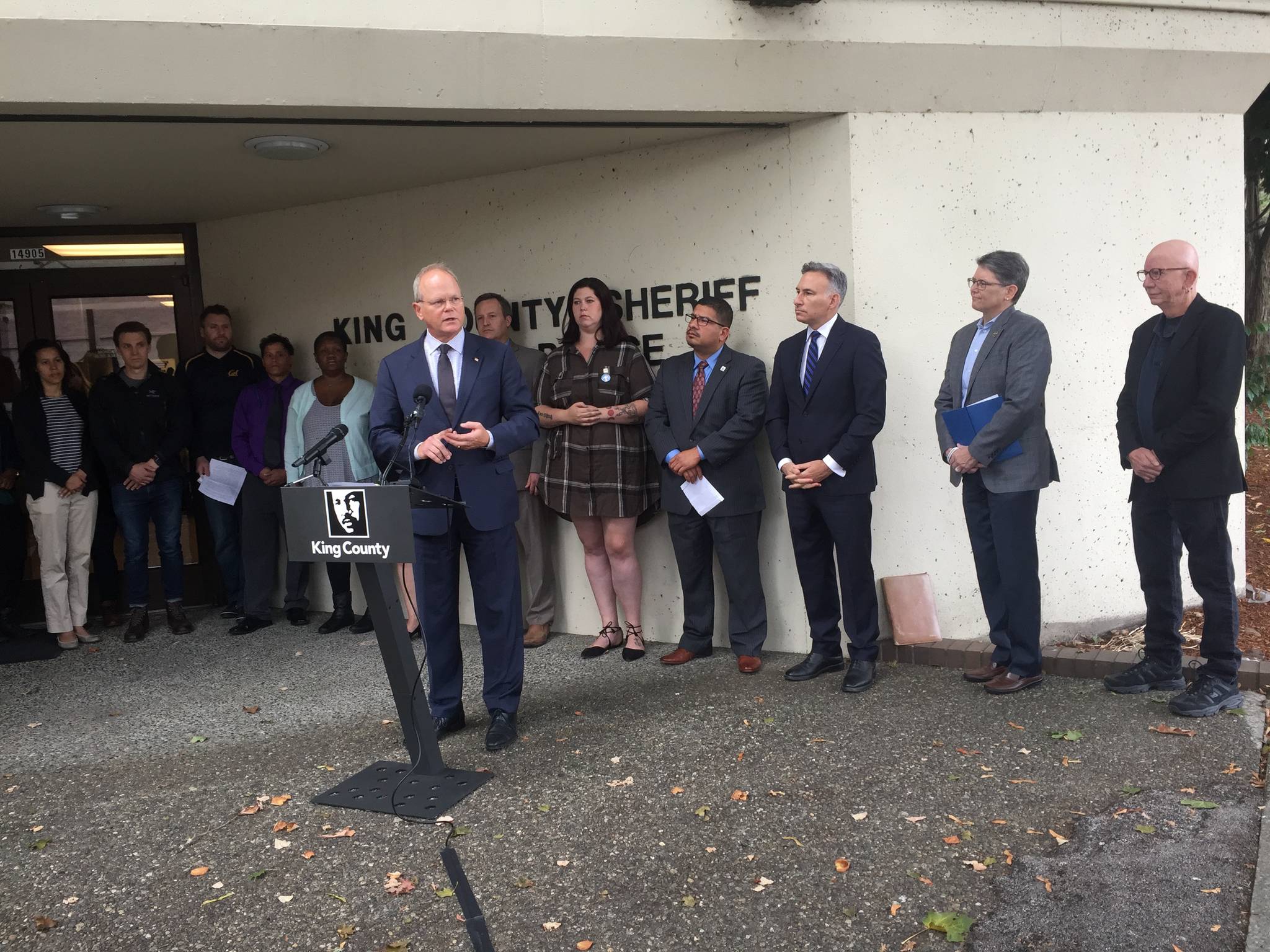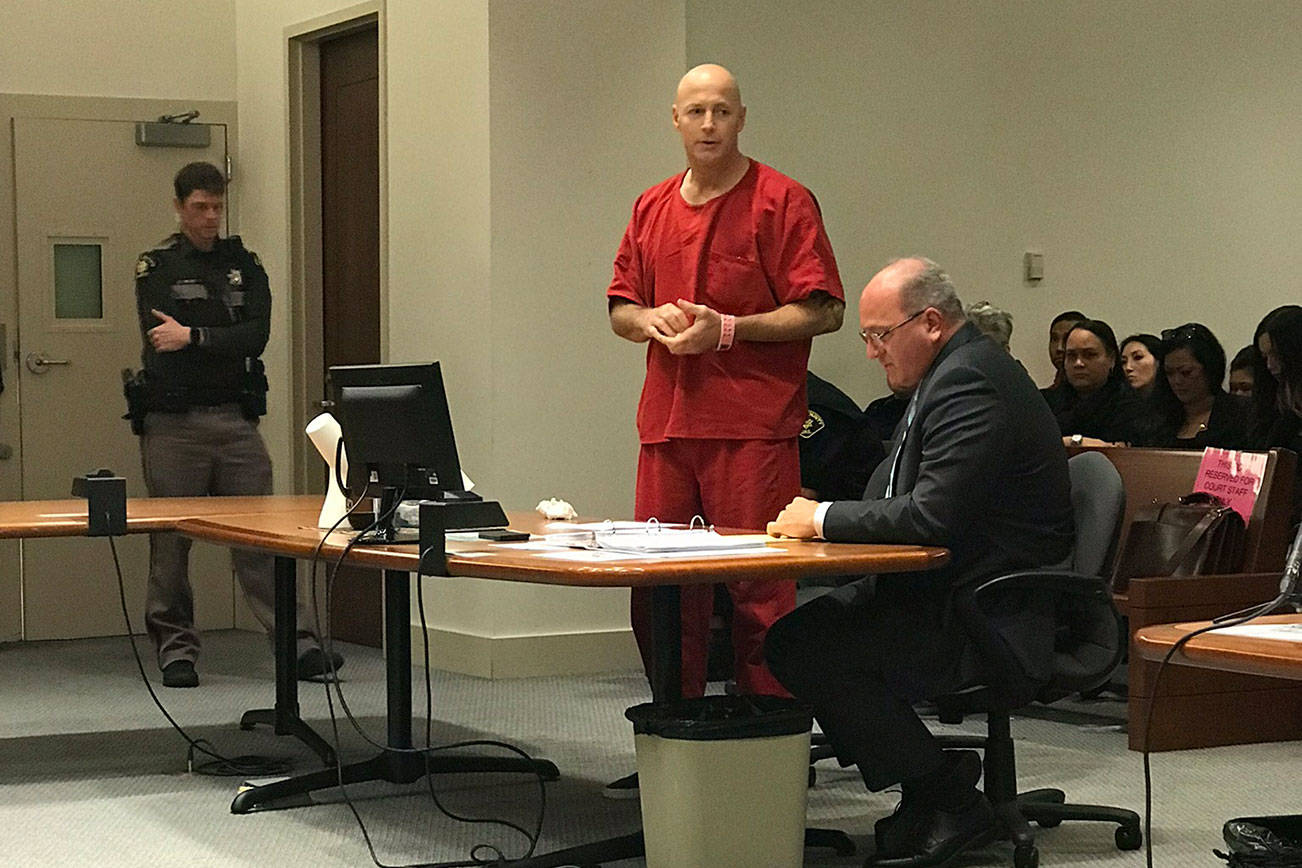After witnessing the success of a Seattle-based strategy for addressing low-level drug crime by sending offenders to social workers instead of into the criminal justice system, King County elected leaders now want to expand the program to Burien and other cities in the county’s south end.
At a Sept. 11 press conference, King County Executive Dow Constantine announced that he will include $3.1 million in his coming 2019-2020 budget proposal to expand Law Enforcement Assisted Diversion (LEAD), a program first launched in Seattle that allows police officers to send low-level drug or prostitution offenders to case managers to help them get connected to drug treatment, housing, and other services — as opposed to incarcerating them at local jails.
Individuals arrested for minor drug possession charges or prostitution are eligible for LEAD. Participants can’t have any felony convictions for serious violent crimes and other offenses. Their case managers are trained to provide ongoing support for clients despite relapses into drug use or other slip-ups.
“LEAD provides a way for police officers and others to steer people into community-based care without going through arrests or court appearances. It’s a way to reach people not quite ready to help themselves but who need a guiding hand,” Executive Constantine said.
The four-year LEAD pilot program—which was established in 2011 through private donations and collaboration between law enforcement, prosecutors, and public defenders after the Public Defenders Association sued the Seattle Police Department over racial disparities in drug arrests—was limited to Seattle’s Belltown neighborhood, which experienced a high-rate of drug related crime and arrests. After a University of Washington study of the program found that the it significantly reduced recidivism rates for low-level drug offenders, LEAD was eventually expanded to other neighborhoods in Seattle, and the City of Seattle ended up kicking in $4 million to keep the programing going. The program has garnered national recognition and has inspired similar efforts in numerous cities such as Santa Fe and Albany, New York.
“We know this approach works because we’ve been doing it for the last seven years,” said King County Prosecutor Dan Satterberg at the Sept. 11 press conference. “When you try to help people, your outcomes are way better than when you just try to punish people. And that’s what this is all about.”
“The original LEAD program developed proof-of-concept. And it was on a scale that was important in Belltown,” said Lisa Daugaard, director of the Public Defender Association and one of the original architects of LEAD. “The challenge of taking this paradigm to scale is a whole new ballgame. King County is leading the way in showing that we’re serious … [that] we’re going to do something effective and we’re going to do that at scale.” (At the press conference, Satterberg also announced that his office would no longer file charges in cases involved in drug possession of under three grams, which amount to roughly 1,000 cases per year.)
Specifically, Constantine wants to draw money from the county’s Mental Illness and Drug Dependency (MIDD) sales tax revenue to fund case managers and leased spaces in three cities across King County starting with Burien. (Additional staff at the prosecutor’s office would also be paid for from the allocation.) County officials estimate that the funding could serve roughly 100 individuals in each of the three cities annually.
Burien Mayor Jimmy Matta, who is strongly supportive of LEAD, said that the local city council will begin discussions on the idea next week. While cities’ participation in the proposed expansion of LEAD is voluntary, Daugaard told Seattle Weekly that local governments and police departments are eager to be a part of the program. “We’re going to run out of money, not be looking for places to put it,” she said.
The allocation would need to get approved by the King County Council during their budget negotiation process slated to begin at the end of this month after Executive Constantine unveils his 2018-2019 budget proposal. But County Councilmember Dave Upthegrove and budget committee chair said at the Sept. 11 press conference that he “enthusiastically” supports expanding LEAD.
Johnny Bousquet, a former heroin user and LEAD participant, said at the Sept. 11 press conference that the program saved his life. “I’m alive because of this guy right here,” he said, pointing to his case manager, Steven Bass, who was standing beside him. “When I didn’t believe in myself, they believed in me.”
“Instead of being in and out of jail I’m in and out of appointments nowadays,” he added. “Tomorrow I’m probably going to get hired for a new job.”
This post has been updated.








